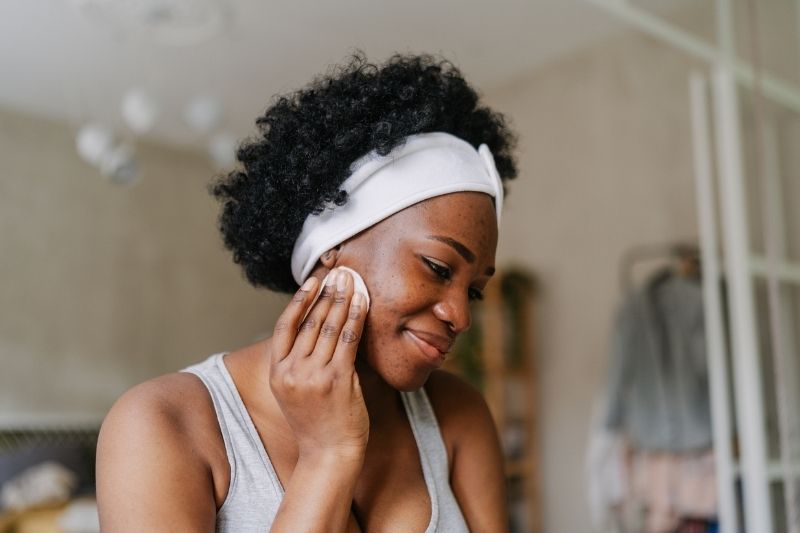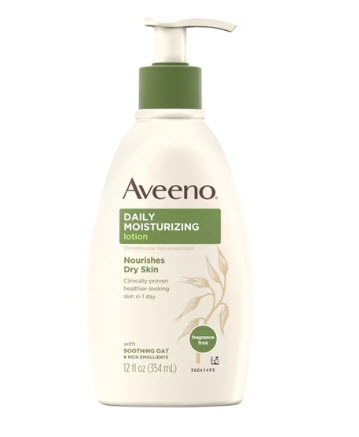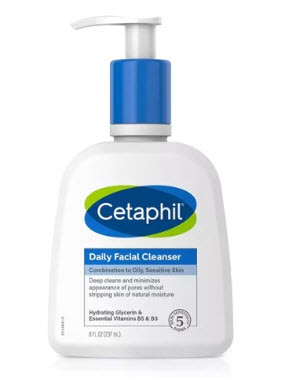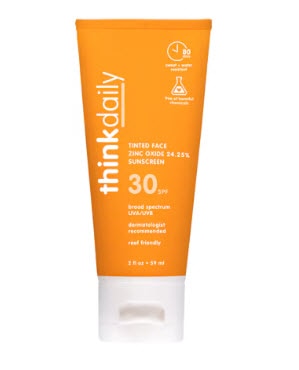Have you ever wondered why some days your skin calms down quickly after a minor irritation, while other days a small trigger spirals into redness or itch that lingers? Skin is not passive. It is a living immune organ that senses, decides and responds all day long.
In this guide, you’ll learn what the skin immune system actually is, how it works and why it is essential for your overall health.
What is the skin immune system?
Your skin is the largest organ of your body and it has three main layers: epidermis, dermis and subcutaneous tissue. Each layer supports your immune defenses. The outermost layer, the epidermis, is your body’s physical shield. It also contains specialized cells that can detect threats.
Beneath that, the dermis layer supports blood vessels and lymphatic channels that allow immune cells to move quickly to where they are needed.
The deepest layer, the subcutaneous tissue, is the cushion of fat under your skin. It helps keep you warm, protects you from bumps and its fat cells send helpful signals.
These layers, along with the friendly microbes that live on your skin, keep invaders out and help you heal.
How does your skin barrier work?
Think of the barrier as three partners:
The physical barrier is the stratum corneum, with corneocytes and lipids that act like brick and mortar, keeping water in and irritants out.
The chemical barrier is made of natural acids, oils and antimicrobial peptides, including defensins and cathelicidins that discourage harmful microbes.
The microbiological barrier is your skin’s community of friendly microbes that crowd out pathogens and train immune responses so they are strong when needed and quiet when not.
When this balance slips, your skin is more prone to irritation and infection. This condition is called dysbiosis.
What is innate immunity in skin?
Your skin has its own built-in security system that reacts immediately when something harmful appears. This is called innate immunity and you can think of it as your body’s “first responders”.
Keratinocytes, the main cells of the epidermis, sense injury or germs and release chemical signals that call in help. Everyday substances your skin makes, like sweat and oil, also support defense. Sweat has components that reduce bacterial growth, while oils seal moisture and help block irritants.
Resident immune cells in the skin act like security guards, spotting problems early and shaping the intensity of inflammation. Itch, redness and swelling are part of this protective process, even though they feel uncomfortable.
And then there are your “friendly microbes”. Millions of bacteria naturally live on your skin, most of them harmless or even helpful. Together, they form the skin microbiome. These friendly microbes crowd out harmful ones and help train your skin’s defenses to react the right way. But if this balance is disturbed in a state called dysbiosis, it can set the stage for problems like acne, eczema or skin infections.
What about adaptive immunity?
Adaptive immunity is slower but more precise. When your skin meets a repeated allergen or a specific microbe, adaptive cells build memory. This is why contact with nickel or fragrance can trigger repeat rashes. It also explains how vaccines work at a deeper immune level. Healthy skin balances quick innate responses with targeted adaptive ones so protection is strong but not excessive.
What are the key jobs of the skin’s immune system?
Your skin’s immune system protects you in several important ways, including:
Defense against pathogens
The skin’s immune system blocks bacteria, viruses, fungi and parasites. It also signals for help when needed.
Wound healing and repair
After an injury, immune cells remove debris and growth factors increase. Keratinocytes and fibroblasts then rebuild the barrier.
Immune surveillance
Patrol cells help detect and eliminate abnormal or precancerous cells before they become a problem.
Inflammation control
The goal of the skin’s immune system is not zero inflammation. The goal is the right amount of inflammation at the right time, then a calm return to baseline.
What shapes skin immunity over time?
Just like the rest of your body, your skin’s immune system evolves. Age, environment and routine all affect the immune system. Here are the biggest factors:
Age
Your skin immunity changes across your lifespan. Infants have developing barriers and are prone to infection. Adults are generally more resilient. With age, healing slows and defenses weaken.
Environment
UV light can suppress local skin immunity, which is one reason sun protection matters. Always use sun protection with at least SPF 30, like the Think Daily Everyday Face Sunscreen. Pollution, smoke and irritants also trigger inflammation and can weaken the skin barrier.
Lifestyle and nutrition
Sleep loss, chronic stress and low nutrient intake can blunt immune responses. Movement, hydration and a varied diet support skin defense.
Medications and medical conditions
Immunosuppressive drugs like systemic steroids or chemotherapy lower skin defenses. Diabetes, advanced kidney disease and HIV can increase skin infection risk and slow healing.
Friction and overcleansing
Rough fabrics, tight gear and harsh cleansers wear down the skin barrier. Once the barrier is thinned, the immune system has to work harder.
How can you support a healthy skin immune system?
Knowing how the skin’s immune system works is only the start. What matters is what you do in your daily life. Simple habits, smart skincare and a few lifestyle choices make the biggest difference.
Start with simple skincare and hygiene
Start with gentle cleansing using lukewarm water and a deep, gently foaming cleanser like Cetaphil Daily Facial Cleanser. Pat dry, do not rub. Follow with a fragrance free moisturizing lotion, like Aveeno Daily Moisturizing Lotion, while the skin is still slightly damp to lock in water.
When you try a new product, add one at a time. Give it two to three weeks before judging results unless you develop stinging, hives or swelling.
Make sun protection non-negotiable
UV exposure can suppress local immune function and raise long-term skin cancer risk. Broad-spectrum sunscreens with SPF 30 or higher, like Sun Bum Original SPF 30 Sunscreen Lotion, are recommended. Do not forget to reapply every two hours when exposed to the sun.
Choose microbiome-friendly habits
Keep showers short and lukewarm. Cleanse where needed, then moisturize. Avoid harsh scrubs and frequent antibacterial washes unless directed by your clinician.
Support from the inside
Aim for a balanced diet with colorful plants, quality protein and healthy fats. Omega-3 fatty acids and antioxidants help maintain the skin barrier and immune balance. If you are vegan, choose an algal oil omega-3 supplement rather than fish or krill. If you are not vegan, fish oil or krill oil, like Vitacost KrillRed Ultra Omega-3 Fatty Acids, may be considered. Hydration and regular movement support circulation and healing. Prioritize 7 to 9 hours of sleep, which directly affects skin repair and immune function.
How do stress and nerves influence skin immunity?
The skin is wired with nerves that signal itch, heat and pain. Those same signals can amplify or quiet inflammation. Stress can raise nerve-derived messengers that worsen itch and redness. Practical steps like brief outdoor walks, regular bedtimes and short breathing exercises help more than most people expect. If sleep is disrupted by itch, address the skin first and the sleep will follow.
What are the early signs that your skin’s immune system needs help?
Stinging or burning from products you used to tolerate, tightness after cleansing or hot showers, small cuts or breakouts that heal slowly or leave marks easily, repeat rashes in the same spots after certain products, jewelry, or metals, and flares that cluster after stress, illness, travel or big weather swings are early clues your barrier is struggling. You may also notice more itching at night or in heated or air-conditioned rooms.
These patterns do not mean something is wrong with your body. They are your skin asking for barrier support and a steadier routine.
When should you see a dermatologist?
Book a visit if a rash spreads fast, blisters badly, involves the eyes or genitals, disrupts sleep, shows pus or yellow crusts or does not improve after several days of gentle care. Seek urgent care for fever, severe pain or any breathing trouble with swelling of the lips or tongue.
Your skin protects you all day, every day. It blocks invaders, heals damage and learns from repeat exposures. When you give it the basics, consistent gentle care, sun protection, balanced nutrition, movement and sleep, its immune system stays calm and ready. If your skin keeps asking for more help, check in with a dermatologist so you have a clear plan.
This article is for general information only. It does not diagnose, treat, cure or prevent any disease and it is not a substitute for personal medical advice.




